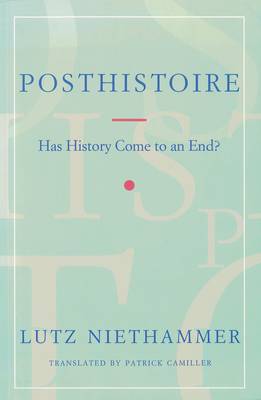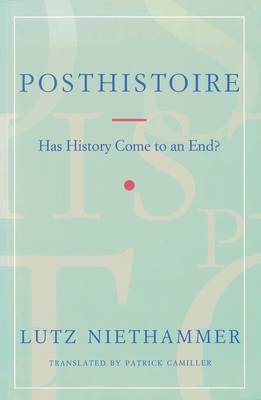
Je cadeautjes zeker op tijd in huis hebben voor de feestdagen? Kom langs in onze winkels en vind het perfecte geschenk!
- Afhalen na 1 uur in een winkel met voorraad
- Gratis thuislevering in België vanaf € 30
- Ruim aanbod met 7 miljoen producten
Je cadeautjes zeker op tijd in huis hebben voor de feestdagen? Kom langs in onze winkels en vind het perfecte geschenk!
- Afhalen na 1 uur in een winkel met voorraad
- Gratis thuislevering in België vanaf € 30
- Ruim aanbod met 7 miljoen producten
Zoeken
Omschrijving
Whether its ultimate resting-place is deemed to be Fukuyama's liberal democracy or Baudrillard's hyperreality, history, according to a number of pundits, has reached the end of the line. In the inflated debates that have ensued, it is precisely history which has been ignored, for the conception of posthistoire is far from new. Here, Lutz Niethammer, Germany's leading practitioner of 'history from below', explores in fascinating detail the forms the conception has taken in the twentieth century and assembles what amounts to an intellectual history of disillusion and resignation. In his survey of thinkers as diverse as Kojeve, Heidegger and Junger, he finds adherents to the idea of the end of history on the Right and Left. But whether they pinned all their hopes on the nation or the proletariat, in different ways they have all conflated the apparent collapse of a particular historical project with the collapse of history itself.
Specificaties
Betrokkenen
- Auteur(s):
- Vertaler(s):
- Uitgeverij:
Inhoud
- Aantal bladzijden:
- 158
- Taal:
- Engels
Eigenschappen
- Productcode (EAN):
- 9780860916970
- Verschijningsdatum:
- 17/05/1994
- Uitvoering:
- Paperback
- Formaat:
- Trade paperback (VS)
- Afmetingen:
- 156 mm x 233 mm
- Gewicht:
- 281 g

Alleen bij Standaard Boekhandel
+ 35 punten op je klantenkaart van Standaard Boekhandel
Beoordelingen
We publiceren alleen reviews die voldoen aan de voorwaarden voor reviews. Bekijk onze voorwaarden voor reviews.









